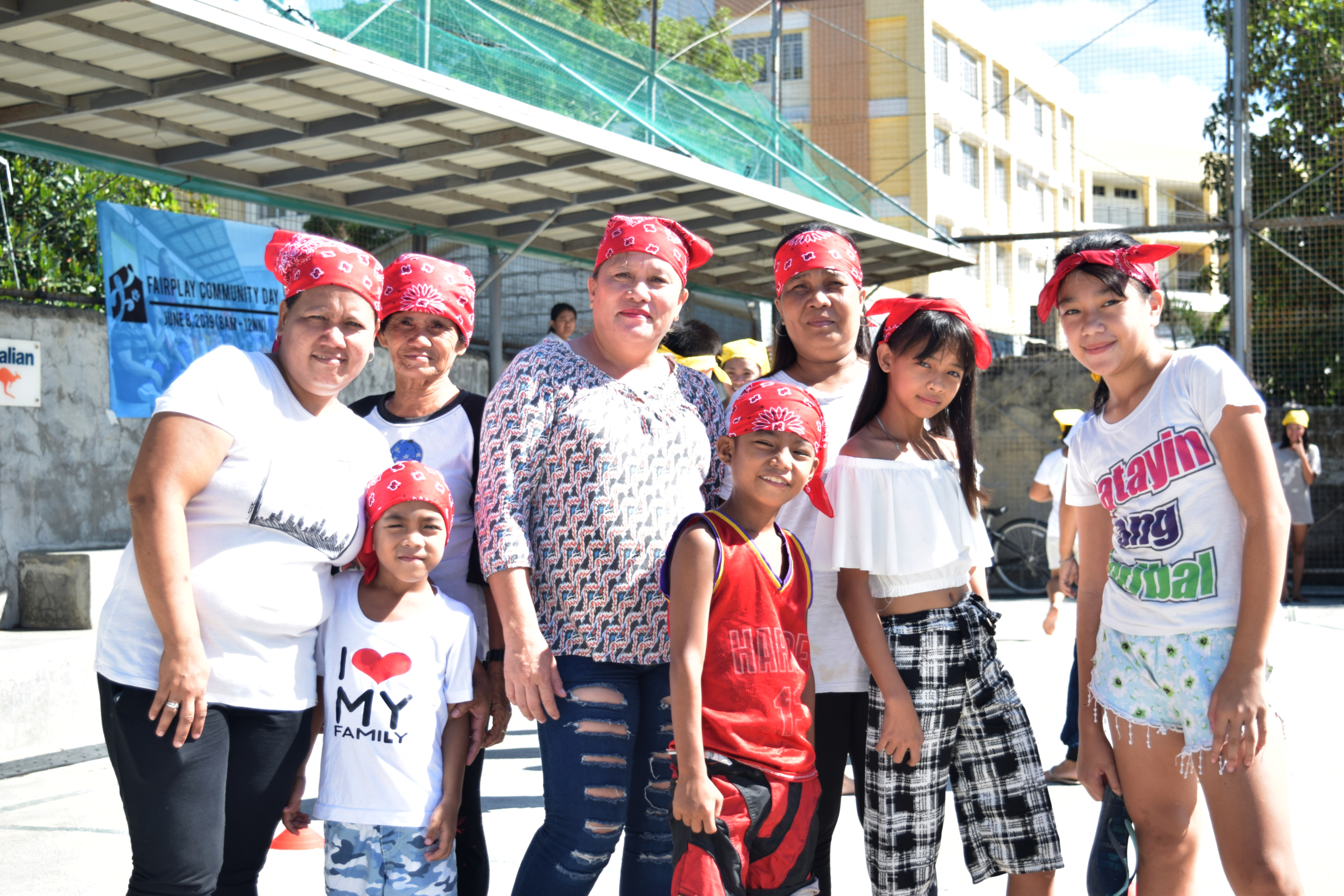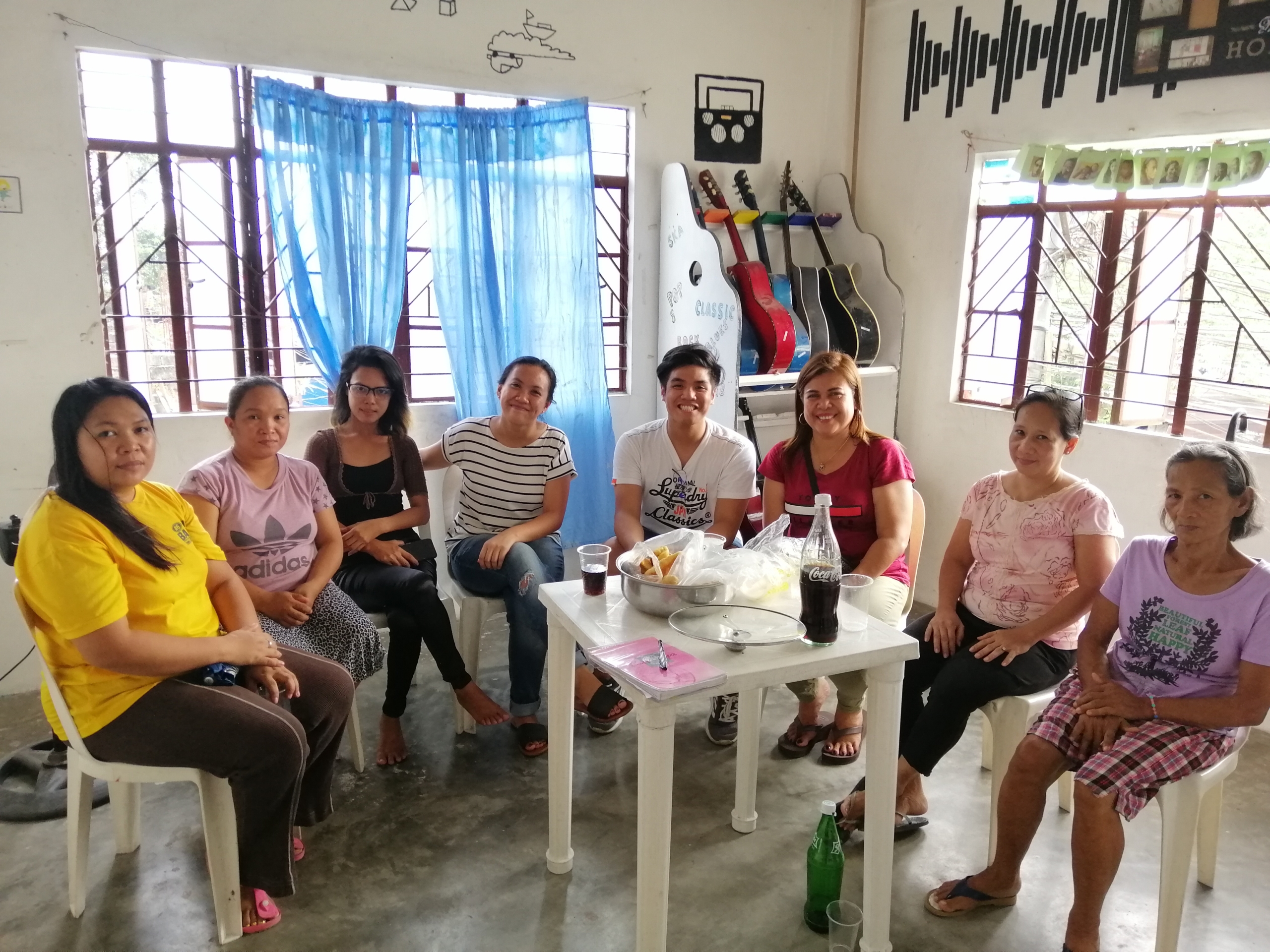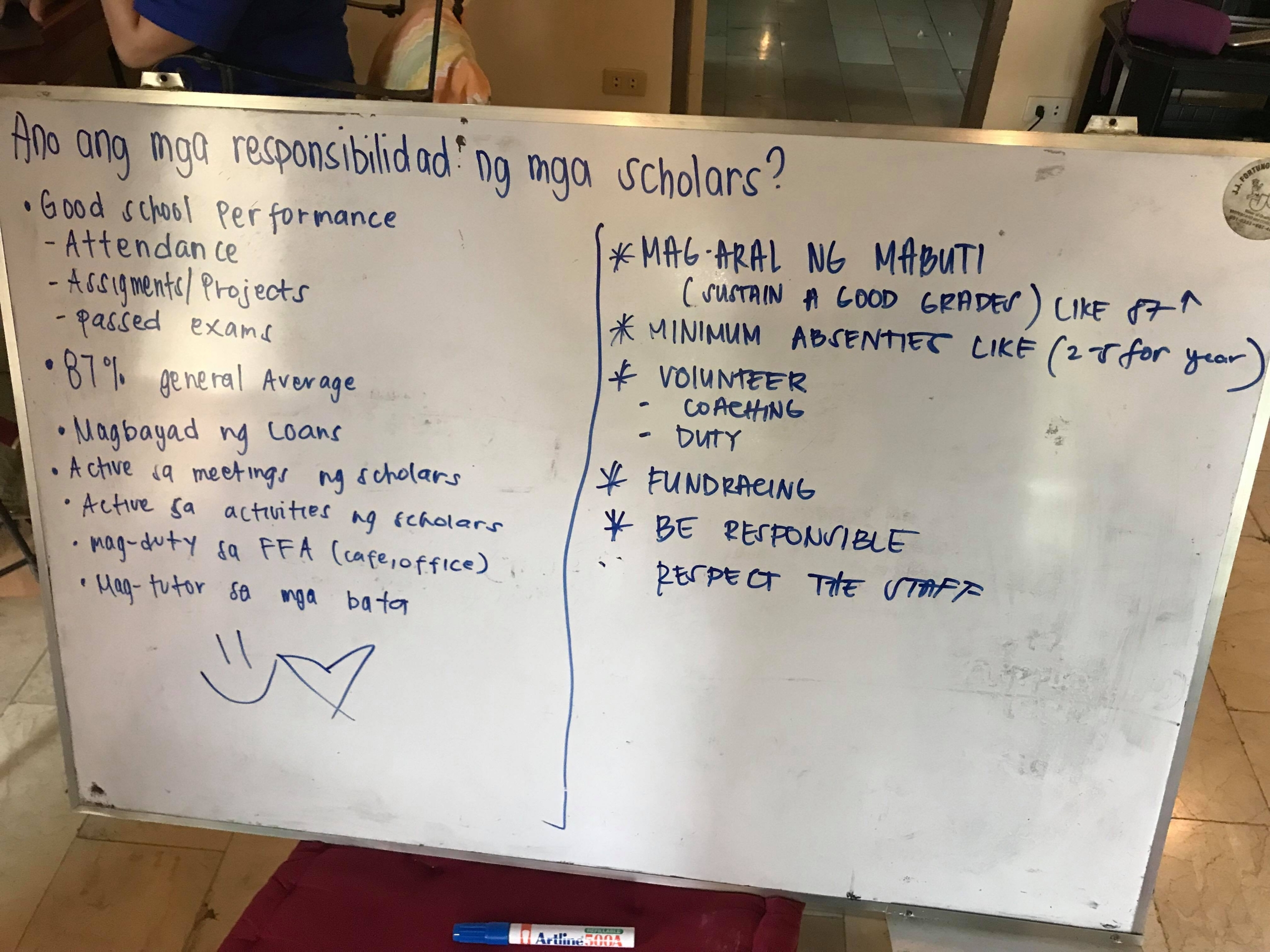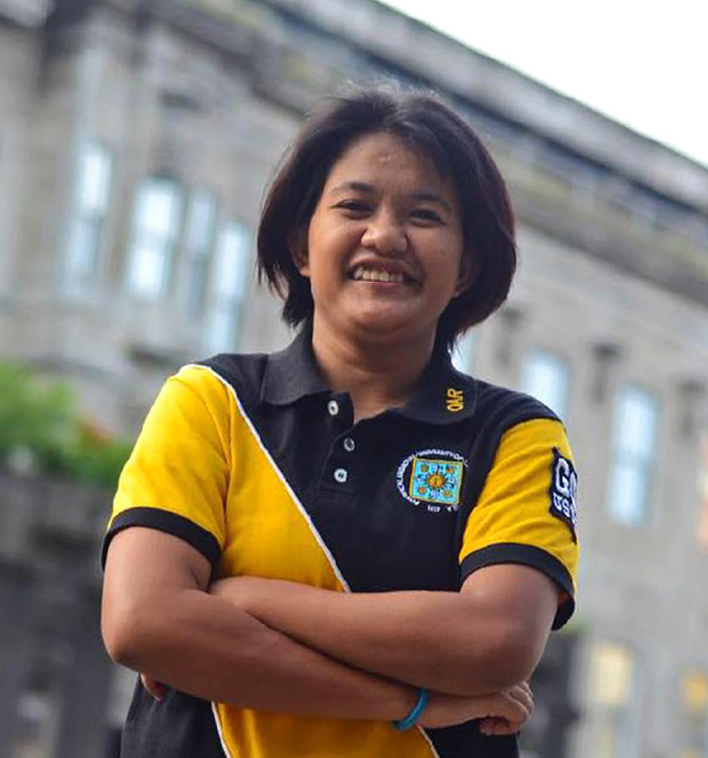Project
Social Intervention in Urban Poor Communities
-
Amount Funded
27,090 EUROProject Duration
01 Dec 2018 - 31 May 2020 -
-
Lead organisation
-
Fairplay was founded in 2011 as a non-profit, non-government organisation intended to be part of the community and empower its beneficiaries. Fairplay’s goal is to level the playing field, which means creating opportunities that are appropriate, holistic, and sustainable within its area. Each area of the field must be levelled at the same time to break the cycle of poverty and solve the root cause of the problems, not just the symptoms. Its main programs are the Fairplay Academy, the first Democratic School in the Philippines, the Fairplay Café, a social business creating a livelihood for local mothers and ensuring healthier food options in the community, and the Payatas Sports Center, where between 100 and 200 players typically train each week in sports.
-
Organisation
Fairplay was founded in 2011 as a non-profit, non-government organisation intended to be part of the community and empower its beneficiaries. Fairplay’s goal is to level the playing field, which means creating opportunities that are appropriate, holistic, and sustainable within its area. Each area of the field must be levelled at the same time to break the cycle of poverty and solve the root cause of the problems, not just the symptoms. Its main programs are the Fairplay Academy, the first Democratic School in the Philippines, the Fairplay Café, a social business creating a livelihood for local mothers and ensuring healthier food options in the community, and the Payatas Sports Center, where between 100 and 200 players typically train each week in sports.
-
Project
The Social Intervention in Urban Poor Communities project aims to construct a practical model of community mental health through research and capacity-building. Through this project, an expanded understanding of the long-term effects of poverty on mental and emotional well-being will is being developed. This establishes a means of intervention to improve the mental and emotional health of people living in extremely poor communities and in the long run, provide better chances for long-term success when other opportunities arise, such as educational and economic opportunities. Safe, social spaces to conduct research and facilitate the sharing and learning of emotional and mental health techniques and practices are being developed by FPFA to.
The main innovation they are working on is the creation of a capacity-building programme for developing emotional intelligence and combating ‘learned helplessness’ (Seligman, 2006), providing for a more supportive environment for personal and community development.
-
-
The Social Intervention in Urban Poor Communities project aims to construct a practical model of community mental health through research and capacity-building. Through this project, an expanded understanding of the long-term effects of poverty on mental and emotional well-being will is being developed. This establishes a means of intervention to improve the mental and emotional health of people living in extremely poor communities and in the long run, provide better chances for long-term success when other opportunities arise, such as educational and economic opportunities. Safe, social spaces to conduct research and facilitate the sharing and learning of emotional and mental health techniques and practices are being developed by FPFA to.
The main innovation they are working on is the creation of a capacity-building programme for developing emotional intelligence and combating ‘learned helplessness’ (Seligman, 2006), providing for a more supportive environment for personal and community development.
-
“The Voice grant has been one of the most challenging but fulfilling grants. We have had our setbacks, we have not fulfilled everything we set out to achieve, but we have also gone further in other areas than we expected to. Overall, it has been a positive learning process for us, we have growth through it. We are thankful for this journey.”

Levelling the playing field, similar to what Voice envisions, is Fairplay for All Foundation’s overall goal. In their Innovate & Learn project, they aim to create a practical model of community mental health in an urban poor community through: 1) research on Adverse Childhood Experiences (ACEs), and 2) capacity-strengthening of both mothers and youth through peer-to-peer mentoring and developing support groups. The following are their learning questions which guided their project journey:
- What is the rate of depression, Adverse Childhood Experiences, level of optimism and self-esteem, in a poor community like Payatas? How does this compare to the National and Regional averages? How does this affect long-term development?
- What impact will social groups, and formalising supportive networks in the community, have for the community in general? How much can we reduce emotional and social problems through these interventions, and what impact does that have on more traditional development targets about employment and school attainment?
- How can we model a more democratic intervention process in poor communities to improve the social and emotional health of the community?

According to FPFA, the following are the biggest achievements of their Voice project that they are proudest of:
Consolidating the Youth Center as our model of community intervention: The Youth Center is a practical model and a physical space for holistic mentoring. The mentors are at the heart of the model, levelling the playing field for the Fairplay Scholars to “play” on. They are the ones who are able to help the younger Scholars get access to the programs and support; they provide the four pillars. Over time, the younger Fairplay Scholars become mentors to the next generation just as the current Youth Leaders have become. Ultimately, this creates a level playing field that allows children and families in the community a better chance to succeed in life and break the cycle of poverty for good.
Integrating ACEs into the Youth Center model: Part of arriving at the Youth Center model is gaining an understanding of childhood trauma (Adverse Childhood Experiences [ACEs]); especially the intergenerational characteristics and relationship to poverty, social issues, and long-term physical and mental health outcomes. Research has emphasized the role of caring individuals as buffers mitigating the impact of ACEs. This is partly why the Youth Center model over time elevated the role of mentors, and the different weekly activities ensure consistent face-to-face engagement between mentors and mentees.

Appreciating the growing engagement, participation, and ownership of our young participants in the Youth Center: Previously, Fairplay was highly reliant on staff outside of the community to run the programs, especially the Education & Community Program and the Fairplay Café. Now, after 10 years of operations, many of the Fairplay Scholars are grown up and those we have closely mentored are stepping up to become youth leaders and young mentors themselves.
“The youth leaders (Rosemarie, Rose Ann, Pia, Melanie, Regine, Althea, Loren Joyce, Kim) shared that they saw gradual changes in themselves as they took on the role of youth leaders. They shared that they had to learn how to manage their time so they can handle their schoolwork and their responsibilities as youth leaders. They saw their attitudes evolve, for example, from being shy and timid at first around the kids to being braver and more self-confident, from being “selfish” (their use of the word) to being more mindful of others’ needs.”
From Ronalyn’s report as the EQ Club facilitator, what she emphasized as a significant change among the children and youth participants, as well as the youth leaders, was the improvement in self-confidence. Ronalyn’s mentorship of the youth leaders in the Youth Center through the EQ Club + Youth Group spreads the culture of care and support she received from her mentor and allowed youth leaders to pass this on among their peers and the younger scholars. The other players, students, youth coaches, and interns see it as far more realistic now to follow such a path.
“While we cannot isolate specifically which of the activities of the Voice project brought the most significant change among the children and youth participants, we can say that the trio of academic support + EQ Club + youth group serve to reinforce each other. With face-to-face contact time and positive interactions, it is ultimately the interns and the youth leaders who are directly involved in creating the change.”

Currently FPFA is experimenting on developing a podcast with monthly episodes as a platform for amplifying our advocacy (ACEs) and the voices of the youth from the community. They will also continue transitioning youth as peer advocates and mentors to foster community-sustained growth of the organisation and its advocacy.
“The seeds have been planted; many are already sprouting. Some have even started bearing fruits and planting seeds of their own. In the next 3-5 years, as long as the project activities are sustained and improved and the process is respected, we can hope to expect more Fairplay Scholars “playing” on a level playing field.”







